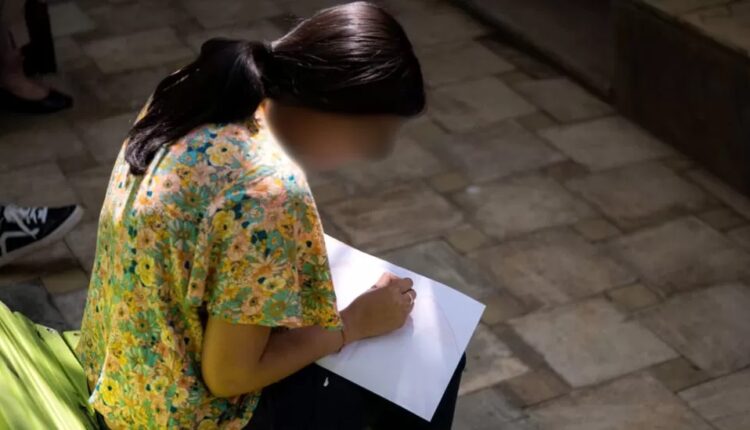Dowries have been illegal in India since 1961, but the bride’s family is still expected to gift cash, clothes and jewellery to the groom’s family.
Now, a 27-year-old teacher in the central city of Bhopal has started a petition asking the police to deploy officers at marriage venues and conduct raids to put an end to this “social evil”.
Gunjan Tiwari (not her real name) tells the BBC her petition is rooted in her own experiences of being rejected by dozens of men over dowry.
The most recent incident took place in February when her father had invited a young man and his family to their home in the hope of finding a match for her.
After her parents had exchanged pleasantries with the guests, Gunjan walked into the living room, carrying a tray with cups of steaming hot tea and snacks for the guests.
She describes the moment as “unnerving”.
“Everyone is staring at you, they are all sizing you up,” she told me on the phone from her home.
A lot of meticulous planning had gone into when and how Gunjan will appear before the guests. Her mother had chosen a green outfit for her because she thought her daughter looked especially fetching in it. She also advised Gunjan not to laugh as it would draw attention to her uneven teeth.
It’s a drill Gunjan is all too familiar with – having done them six times in as many years. The questions they asked her were also familiar – about her education and work, and whether she could cook.
Before entering the room, she had heard her parents ask the prospective groom’s father how much dowry he expected. “We had heard that they wanted 5m to 6m rupees ($61,000 – $73,000; £48,100 – £57,000). When my father asked him, he joked that ‘if your daughter is beautiful, we’ll give you a discount’,” she says.
As the conversation progressed, Gunjan says she figured a discount was not going to be offered – the visitors asked her about her uneven teeth and the mole on her forehead.
After tea, when Gunjan was given a few minutes to talk to the prospective groom privately, she told him that she would not marry for dowry.
“He agreed that it was a social evil,” she told me, adding that it made her think that he was different from the others she had met so far.
But the Tiwaris soon learnt that Gunjan had been rejected.
“My mother blamed it on my anti-dowry stance. She was furious with me and didn’t speak to me for more than two weeks,” she says.
In the past six years, Gunjan says her father has contacted “families of 100-150 eligible bachelors” and met more than two dozens of them. Gunjan herself has been presented before six of them. Almost all of them, she says, have fallen through over dowry.
“Because of these rejections I have lost all my confidence,” says Gunjan, who has a Masters’ degree in mathematics and takes online classes.
“When I think rationally, I know it’s not I who is lacking something, the problem is with people who want dowries. But I often feel like I have become a liability for my parents.”
Despite dowries – both giving and accepting – being illegal for more than 60 years, 90% of Indian marriages involve them – according to a recent study.
Payments between 1950 and 1999 amounted to a quarter of a trillion dollars.
Parents of girls are known to take out huge loans or even sell their land and house to meet dowry demands and even that doesn’t necessarily ensure a happy life for a bride.
According to the National Crime Records Bureau, 35,493 brides were killed in India between 2017 and 2022 – an average of 20 women a day – for bringing in insufficient dowry.
Campaigners say dowry is also one of the reasons behind India’s skewed gender ratio – the UN estimates that nearly 400,000 female foetuses are aborted every year using pre-natal sex screening tests by families worried that daughters would cost them dowries.
In her petition addressed to Harinarayan Chari Mishra, the Police chief of Bhopal, Gunjan says that the only solution is raiding wedding venues and arresting those found giving or receiving dowry. The “fear of punishment” will help “put a stop to this cruel practice,” she adds. Last week, she met Mr Mishra to request his help in her fight.
Source: BBC


Comments are closed.